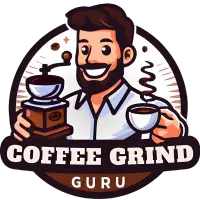For maximum productivity, stick to 2-3 cups (200-400mg caffeine) daily, spaced strategically throughout your day.
Hit your first cup between 9:30-11:30 AM when cortisol dips, not right after waking up. Your second cup should come during the post-lunch slump (1:00-3:00 PM), but cut off coffee by 2 PM to avoid sleep issues.
Listen to your body – if you’re getting jitters or anxiety, scale back. Smaller folks might need less, while larger individuals could handle more. Everyone’s sweet spot is different, and finding yours takes some trial and error.
Quick Summary
- Limit coffee intake to 400mg of caffeine daily (about 4 cups) to maximize benefits while avoiding negative side effects.
- Start with one cup between 9:30-11:30 AM when cortisol levels drop, waiting 90 minutes before consuming more.
- Space coffee consumption 4-6 hours apart and stop drinking by 2 PM to prevent sleep disruption.
- Listen to your body’s signals and track energy levels to find your personal optimal caffeine threshold.
- Consume 8-12 oz servings with protein-rich foods, staying hydrated throughout the day for best results.
The Science Behind Coffee Benefits
Most coffee drinkers enjoy their daily cup without fully understanding the complex biochemical processes behind its productivity-boosting effects. The magic happens when caffeine blocks adenosine, a chemical that makes you feel tired. Pretty sneaky, right?
Here’s what coffee actually does to your brain:
- Increases dopamine levels – hello, motivation!
- Boosts adrenaline production
- Enhances memory and focus
- Speeds up reaction time
- Improves physical performance
Let’s be honest – coffee isn’t just a drink, it’s basically brain fuel. When caffeine hits your system, it triggers a cascade of changes that transform you from a zombie into a productivity machine. Within 15-45 minutes, you’re sharper, more alert, and ready to tackle that mountain of work. Adding creatine supplements can amplify these cognitive benefits even further.
But there’s more to it than just caffeine. Coffee contains hundreds of bioactive compounds that work together to enhance cognitive function. Antioxidants? Check. Nutrients? You bet. Mental clarity? Absolutely.
The best part? These benefits aren’t just placebo effects. They’re backed by decades of research. Sure, some people claim they can function without coffee – but why would you want to?
Regular coffee consumption provides brain protection benefits that may help reduce the risk of developing neurodegenerative disorders like Alzheimer’s and Parkinson’s disease.
Finding Your Personal Caffeine Threshold
While coffee’s benefits are well-documented, determining the right amount for ideal productivity varies substantially from person to person. What energizes one person might send another into jitters and anxiety. Finding your sweet spot takes experimentation and self-awareness.
Start by tracking your coffee consumption and its effects. Pay attention to:
- Energy levels throughout the day
- Ability to focus
- Physical symptoms (heartbeat, sweating, anxiety)
- Sleep quality
You probably already know if you’re overdoing it… Racing thoughts? Shaky hands? Yeah, time to cut back. But if you’re falling asleep at your desk by 2 PM, you might need an extra cup.
Try this simple method:
- Start with one cup in the morning
- Wait 90 minutes
- Assess how you feel
- Add another cup only if needed
Using filtered water can enhance both the safety and flavor of your daily coffee intake.
Listen to your body. Some people thrive on five cups daily, while others get the jitters from half a cup. And here’s the kicker – your tolerance changes over time. What worked last year might not work now.
Remember: The goal isn’t to become a caffeine junkie. It’s about finding your ideal dose for peak performance.
To maintain healthy sleep patterns, avoid consuming caffeine six hours before your intended bedtime.
Best Times to Drink Coffee
Strategic timing of coffee consumption can dramatically impact its effectiveness for productivity. Let’s face it – chugging coffee at random times throughout the day is amateur hour. Science tells us there are ideal windows for caffeine intake, and timing matters.
The best times to drink coffee:
- Mid-morning (9:30-11:30 AM): Your cortisol levels are dropping, making this the perfect time for your first cup
- Early afternoon (1:00-3:00 PM): Combat that post-lunch slump
- Pre-workout: 30 minutes before exercise, if you’re an afternoon gym person
Worst times? Right after waking up. Seriously, put down that mug. Your body is already producing cortisol to wake you up naturally. Adding coffee is like bringing a flame thrower to light a birthday candle.
Never drink coffee:
- Within 6 hours of bedtime (unless you enjoy staring at your ceiling)
- On an empty stomach (hello, acid reflux)
- Back-to-back cups without spacing them out
Understanding coffee flavor profiles can help you choose the right blend that energizes without overwhelming your system. Remember: Coffee isn’t a substitute for sleep. If you’re mainlining espresso shots at 4 PM because you’re exhausted, you’re doing it wrong. Strategic timing or nothing.
As any busy barista can tell you, proper coffee timing helps maintain energy levels while reducing the physical exhaustion that comes with long work shifts.
Signs of Coffee Overconsumption
Despite coffee’s productivity benefits, recognizing signs of overconsumption is essential for maintaining peak performance and health. When you’re downing cup after cup, your body will definitely let you know it’s had enough – and trust me, it won’t be subtle about it.
Key warning signs you’re overdoing the coffee:
- Jitters and shakiness (that embarrassing moment when you can’t hold your pen steady)
- Racing heartbeat and anxiety (because who needs actual panic when coffee can simulate it?)
- Trouble sleeping (lying awake at 3 AM, anyone?)
- Digestive issues (we’ll spare you the details)
- Headaches and irritability (snapping at coworkers over minor things)
- Muscle twitches (especially that annoying eye twitch)
Let’s be real – if you’re experiencing these symptoms, you’re probably drinking too much. Your “productive buzz” has crossed into counterproductive territory.
Cut back before you become that person who’s bouncing off walls in meetings and sending rambling emails at midnight. Just like how coffee oils build up in equipment over time, excessive caffeine can accumulate in your system and affect your performance.
Remember: Coffee is supposed to enhance your workday, not turn you into a caffeinated mess. Regular deep cleaning of coffee makers helps ensure you’re not consuming harmful bacteria along with your daily caffeine fix.
Strategic Coffee Consumption Tips
Now that you can recognize the warning signs of too much coffee, implementing smart consumption habits will help you harness caffeine’s benefits while avoiding its pitfalls. Let’s plunge into some game-changing strategies that actually work.
First, timing is everything:
- Hit that first cup between 9:30-11:30 AM (seriously, your cortisol levels will thank you)
- Space drinks 4-6 hours apart
- Cut yourself off by 2 PM, unless you enjoy staring at your ceiling all night
Quality matters more than quantity:
- Choose high-grade beans – that gas station sludge isn’t doing you any favors
- Stick to 8-12 oz servings
- Black coffee beats those sugar-loaded fancy drinks every time
Arabica beans deliver superior flavor without the harsh bitterness of lower-quality varieties.
Smart tactics for maximum benefit:
- Pair your coffee with protein, not just empty carbs
- Stay hydrated (no, coffee doesn’t count as water, people)
- Consider a 20-minute coffee nap for the ultimate productivity hack
For an extra-smooth morning boost, try cold brew coffee which offers lower acidity and can be prepared up to 24 hours in advance.
Remember: Coffee is a tool, not a crutch. If you’re mainlining espresso shots just to function, you’ve got bigger problems to solve. Start with these strategies, and watch your productivity soar – without the jitters.
Alex is a self confessed coffee addict – but he takes his love of caffeine seriously in a completely responsible way. He loves trying new coffees and testing the latest machines and is not usually fan of one button pod machines. Alex is happiest when he is tinkering with settings and milk temperatures to create the perfect cup. When not obsessing over coffee, Alex is a keen musician and plays weddings and other social events (usually fuelled by… yes, you guessed it… coffee).


